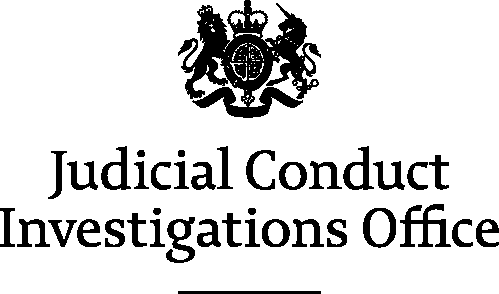




JCIO 43/25
Date: 03 October 2025
A spokesperson for the Judicial Conduct Investigations Office said:
Mr Justice Keehan, on behalf of the Lady Chief Justice and with the Lord Chancellor’s agreement, has issued Mr Andrew Dawson JP with formal advice for misconduct.
Facts
Magistrates sign a declaration and undertaking on appointment, which includes an agreement to be circumspect in their conduct and maintain the dignity, standing and good reputation of the magistracy at all times, in their private, working and public lives. The Guide to Judicial Conduct reminds magistrates that the initials JP should not be used for the furtherance of trade, professional, business or political interests. In addition, the Useful Information for Magistrates (2020) states: “Great care should be taken to avoiding personal reference to your position as a magistrate in circumstances where it could be perceived as an attempt to influence or gain advantage”. Mr Dawson was referred to the Midlands Conduct Advisory Committee after advising his bench chair that he had referred to his status as a magistrate when standing as a candidate in a local election. Mr Dawson had a promotional leaflet produced in which he made the following statement: “17 years keeping the streets safe as a magistrate”.
Mr Dawson’s representations
In his representations, Mr Dawson explained that that he had referred to his role as a magistrate to evidence he was a committed public servant and said it was part of his “sales pitch”. He apologised for his actions and said he was mindful of the content of the declaration and undertaking, but was unclear how his campaign material, and the reference to his public service, could undermine the dignity, standing and good reputation of the magistracy.
Nominated judge’s findings
In his representations, Mr Dawson explained that that he had referred to his role as a magistrate to evidence he was a committed public servant and said it was part of his “sales pitch”. He apologised for his actions and said he was mindful of the content of the declaration and undertaking, but was unclear how his campaign material, and the reference to his public service, could undermine the dignity, standing and good reputation of the magistracy.
Nominated Committee Member’s findings
The allegation was investigated in accordance with The Judicial Conduct (Magistrates) Rules 2023. A nominated committee member of the Midlands Conduct Advisory Committee found that Mr Dawson had referred to his position in a way which went beyond a permissible statement of fact; and clearly intended for the reference to his role to form a part of his electioneering campaign. There was a risk that the reference to Mr Dawson’s position as a magistrate could be perceived as an attempt to enhance his appeal as a prospective councillor and may have influenced how voters had viewed him. While the NCM accepted this was a genuine error of judgment, even if it was not Mr Dawson’s intention in making this reference, it reflected a lack of circumspection and care. The NCM concluded that Mr Dawson’s actions were in contravention of the guidance, and declaration and undertaking and amounted to misconduct.
Decision
The nominated committee member took into consideration Mr Dawson’s genuine apology and previous unblemished service. Mr Justice Keehan and the Lord Chancellor agreed with the findings and issued Mr Dawson with formal advice.
Sanctions for misconduct by judicial office-holders are set out in the Constitutional Reform Act 2005. They are, in order of severity: formal advice, formal warning, reprimand and removal from office.
For more information about the Office, including details on how to make a complaint against a judicial office holder, you can visit the JCIO website at: Judicial Conduct Investigations website